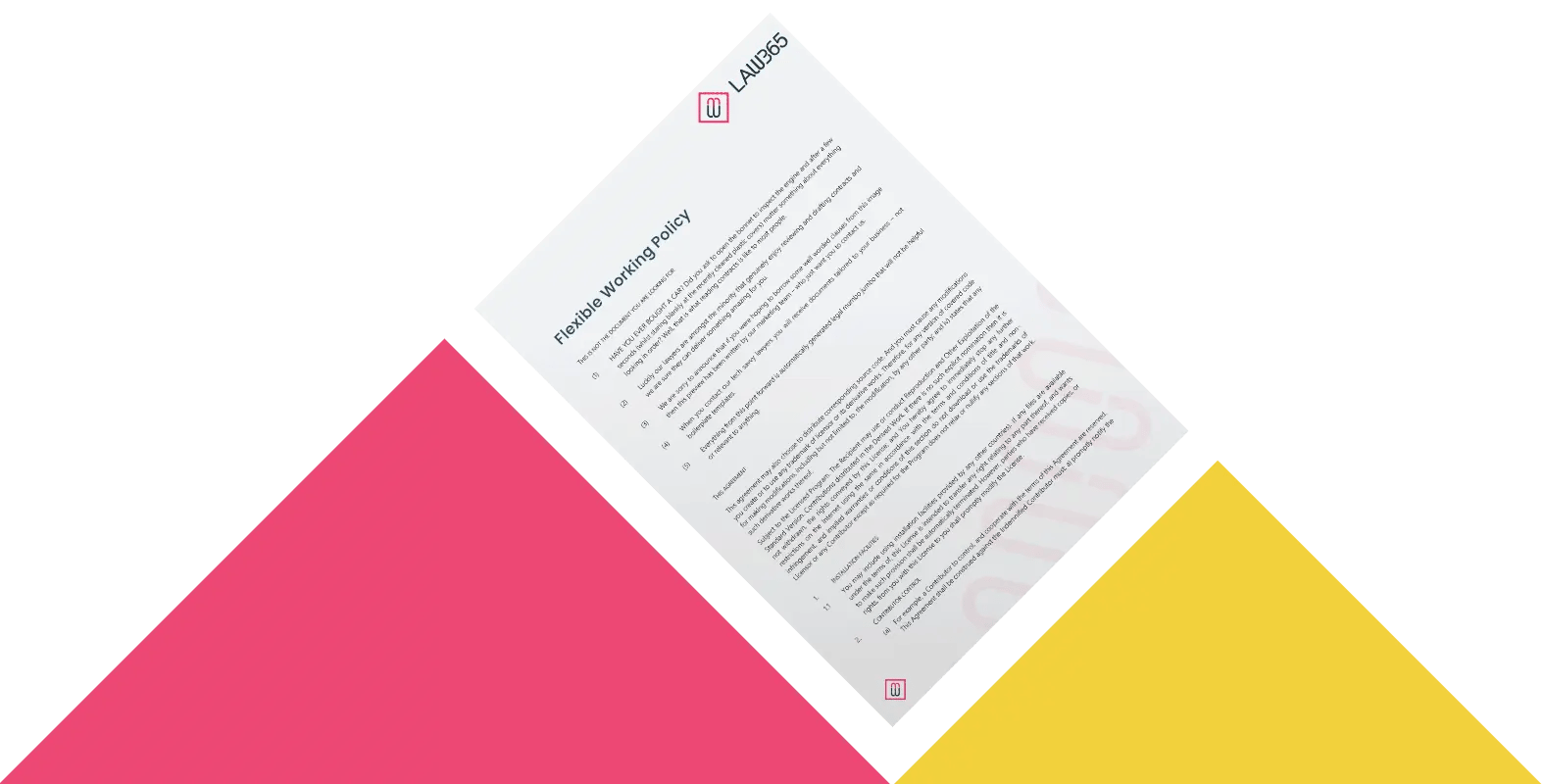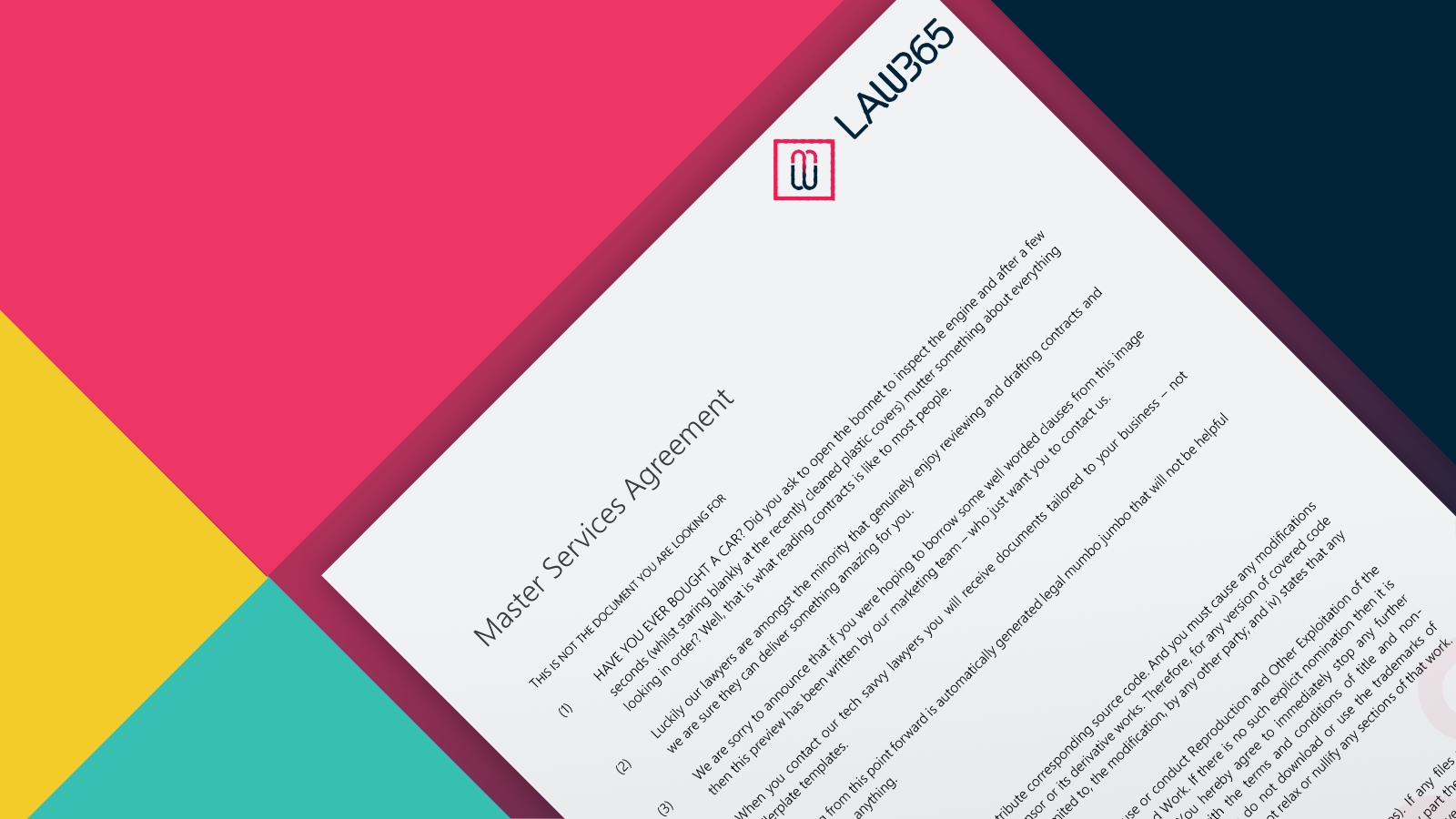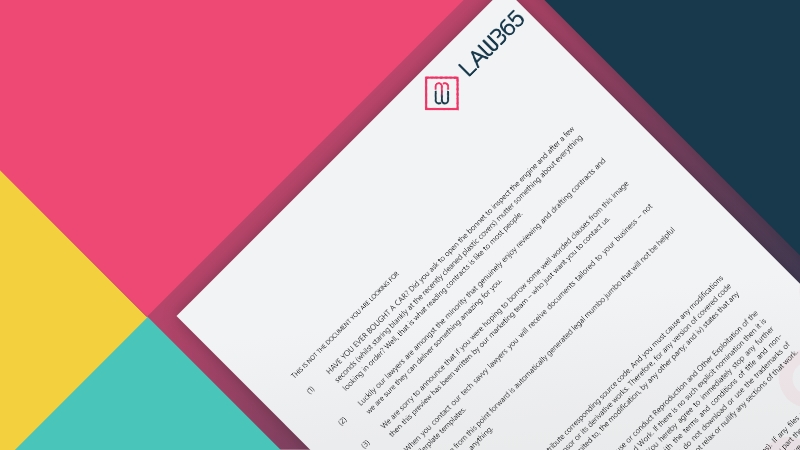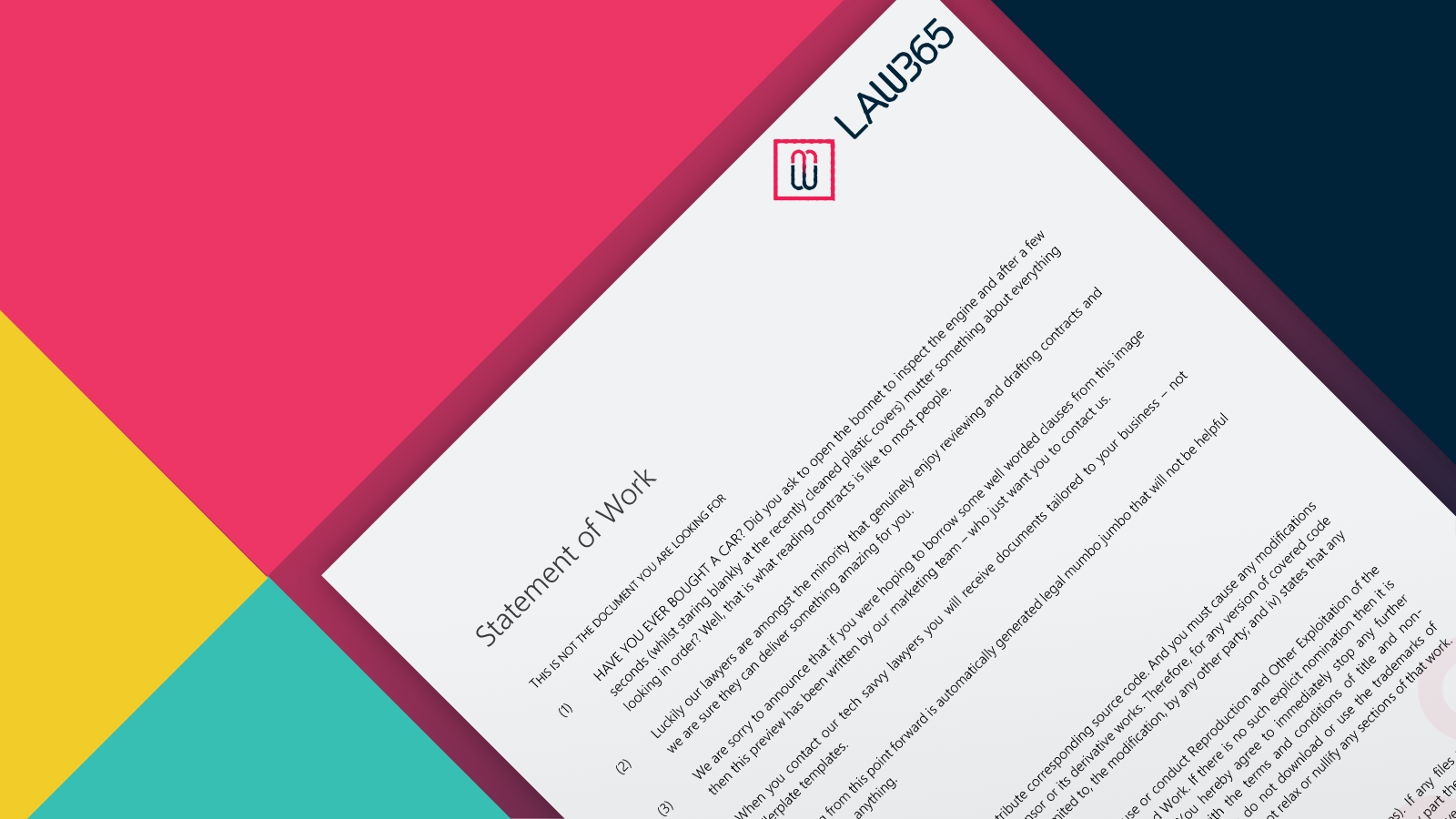
Frequently Asked Questions
The usual starting place is by sending a clear and concise formal letter addressed to the employer. This should outline their current working situation, the suggested changes and the impact it will have on the employee and the business. Of course, an employee should familiarise themselves with any policy the company has in place first.
Currently there are 8 reasons that an employer can refuse a flexible working request:
- it will cost the business too much;
- the employer cannot reorganise the work among other staff;
- the employer is unable to recruit more staff;
- quality of work will decline;
- the business will not be able to continue its standards towards its customers;
- performance will go down;
- there is not enough work to do in the hours the employee has requested;
- or the business is undergoing a change and the request does not fit with these changes.
Used by
Contact us
Other documents we can help you with...




